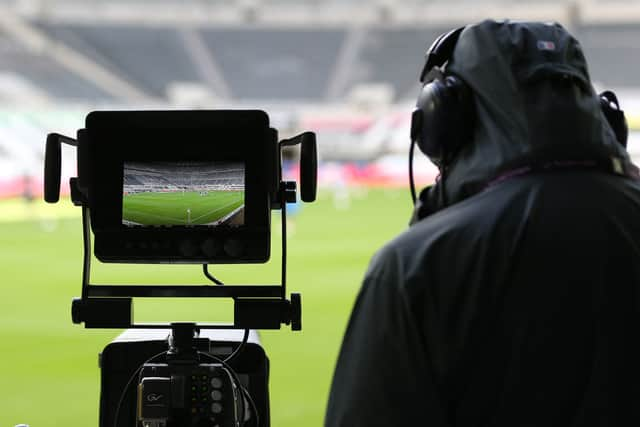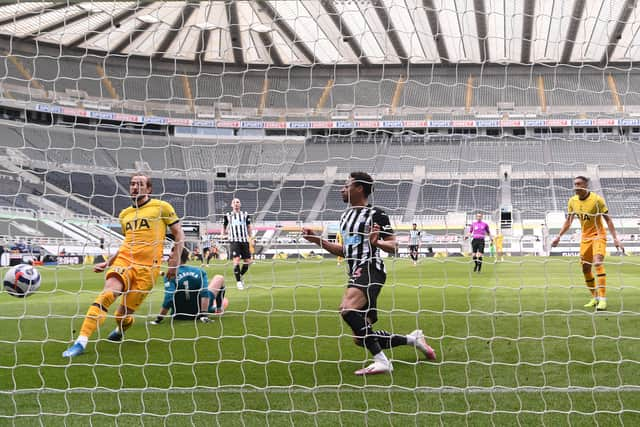Controversial Arsenal, Chelsea and Newcastle decisions show what supporters really mean to TV executives
and live on Freeview channel 276
Anger and frustration continues to increase as broadcasting companies wreak havoc with Premier League fixture lists with not a care for supporters around the country.
Let’s not beat around the bush here, for all of the talk of romance and cherished moments within the game, we can all accept football sold its soul over three decades ago and left itself at the mercy of broadcasting companies that value viewing figures over match-going supporters.
Advertisement
Advertisement
You can’t help but back to those difficult days during Covid-inflicted lockdowns when friends and families were separated by miles and Premier League fixtures took place in front of large swatches of empty seats in soulless, deserted stadiums with ‘atmosphere’ provided by computer generated chants.


With an honest apology for the use of corporate speak, you would wonder how any broadcasting executive could not have felt their ‘product’ had taken a severe blow and the importance of match-going supporters should really have hit home in a big way. I can’t have been the only one that witnessed what felt like heartfelt, emotional videos welcoming supporters back to stadiums around the country once the lockdown shackles had been shaken off, and wondered just how long this new-found love of supporters would last. The answer, of course, would be not very long at all.
In recent years, there has been growing frustration over delays in announcing the details of televised fixtures, with deadlines set for announcements routinely missed due to a multitude of excuses that simply don’t wash with supporters. The excellent Football Supporters Association have continually warned the Premier League and broadcasting companies of the financial and practical impact such delays impose upon fans around the country.


The latest came just last week, when the Premier League failed to meet a self-imposed five-week target for announcements over games that will take place in March. An enraged FSA responded via social media, saying: “We hear (the) Premier League, Sky Sports & police have failed to finalise games (again) which means the Premier League may miss their 5-week target (again) causing the usual problems for matchgoers (again). Travelling fans expected to buy tickets for games that have a big chance of moving. Not good enough.”
Advertisement
Advertisement
The riposte just over a month after supporter representatives from the FSA met with Premier League officials, including chief executive Richard Masters, to discuss several matters including fixture scheduling and the impact of broadcasters on match-going fans. The minutes from the meeting can be found here and I’ll leave you to form your own opinions on the Premier League’s replies to some very valid questions.
The announcement caused even further discomfort for supporters, with Newcastle United fans facing a Monday night visit to Chelsea just weeks after the rearrangement of an FA Cup tie at Fulham to a Saturday night fixture meant Magpies supporters were unable to make the last train home following the game. It would also be foolish not to point out such an announcement was also made as the Premier League and broadcasting companies congratulated themselves on taking part in Green Football Weekend. Such irony was clearly lost on those in power.
The announcement also coincided with a visual demonstration from Newcastle supporters via the ‘Wor Flags’ group. Usually, pre-match displays at St. James' Park focus on current and former Magpies heroes, give spectacular backing to Eddie Howe and his players or to the club as a whole. But on Saturday, prior to their 4-4 draw with Luton Town, the Wor Flags display focused on showing their anger over the lack of thought given to supporters when fixtures are rescheduled for television.
Four games were referenced alongside banners stating ‘TV before fans’ and ‘Green Football Weekend’ - the aforementioned 7pm kick-off at Fulham, 8pm kick-offs at Arsenal and Liverpool (the latter on New Years Day) and the recent midweek 8.15pm kick-off at Aston Villa. Newcastle are far from the only group of supporters being impacted by such moves - but they are a prime example of how little consideration is taken by broadcasting companies.
Advertisement
Advertisement
Since the start of the season, Eddie Howe’s men have played 34 fixtures, just five have come at the ‘traditional’ kick-off time of 3pm on a Saturday. Some will say Newcastle are a victim of their own success, having progressed from relegation candidates to European challengers in the last two years, becoming a 'big draw’ for viewers. Yet who are the real victims in all of this? Not the club itself, nor the players or staff. Not the viewers who can sit at home and watch from afar. The only victims are the match-going supporters who find themselves consistently at bottom of a list of priorities when it comes to any decisions taken by broadcasters.
Sadly, I have no doubt, when the Magpies sell out the away end at Chelsea for a Monday night fixture with little hope of returning to Tyneside on the night of the game, there will be the usual pat on the head from broadcasters lauding the commitment and loyalty on display, without any consideration over the disruption caused by such the rearranged fixture.
Football sold its soul to broadcasting companies many moons ago, but why are the match-going supporters, those that deliver so much for so little in return, consistently reduced to being an after-thought? Something simply has to change.